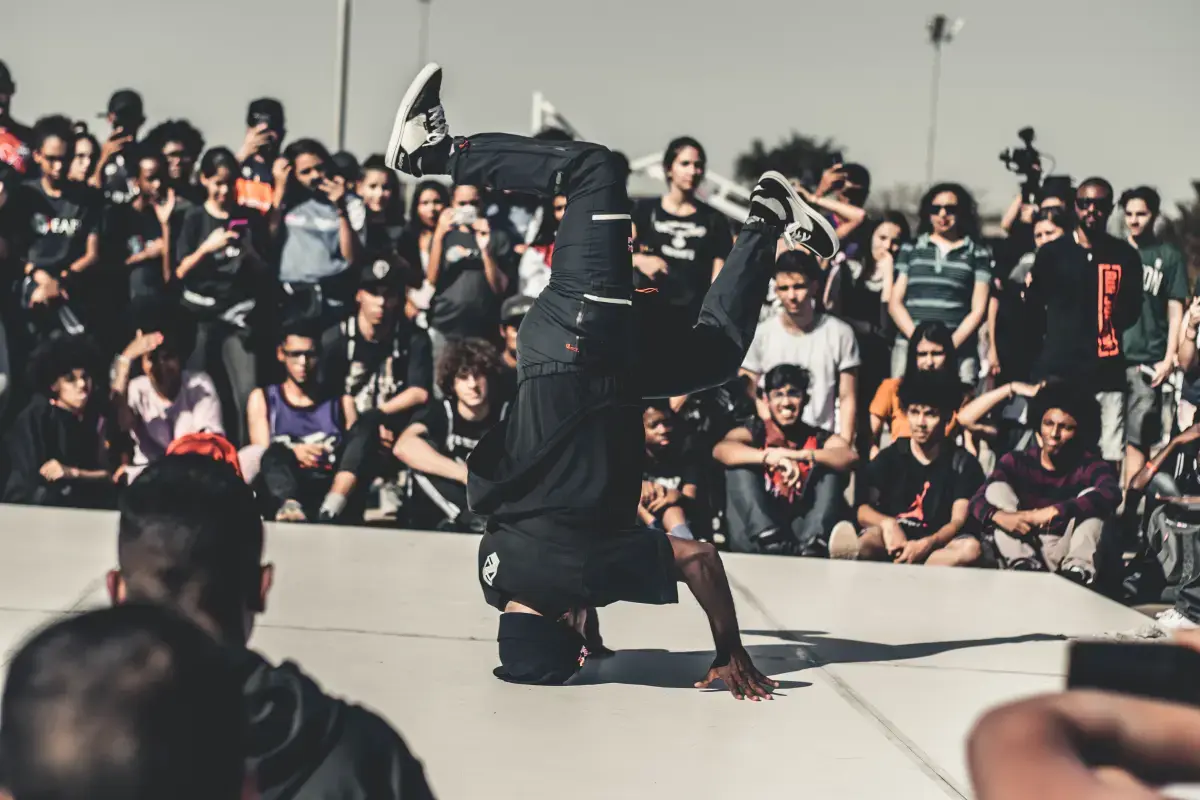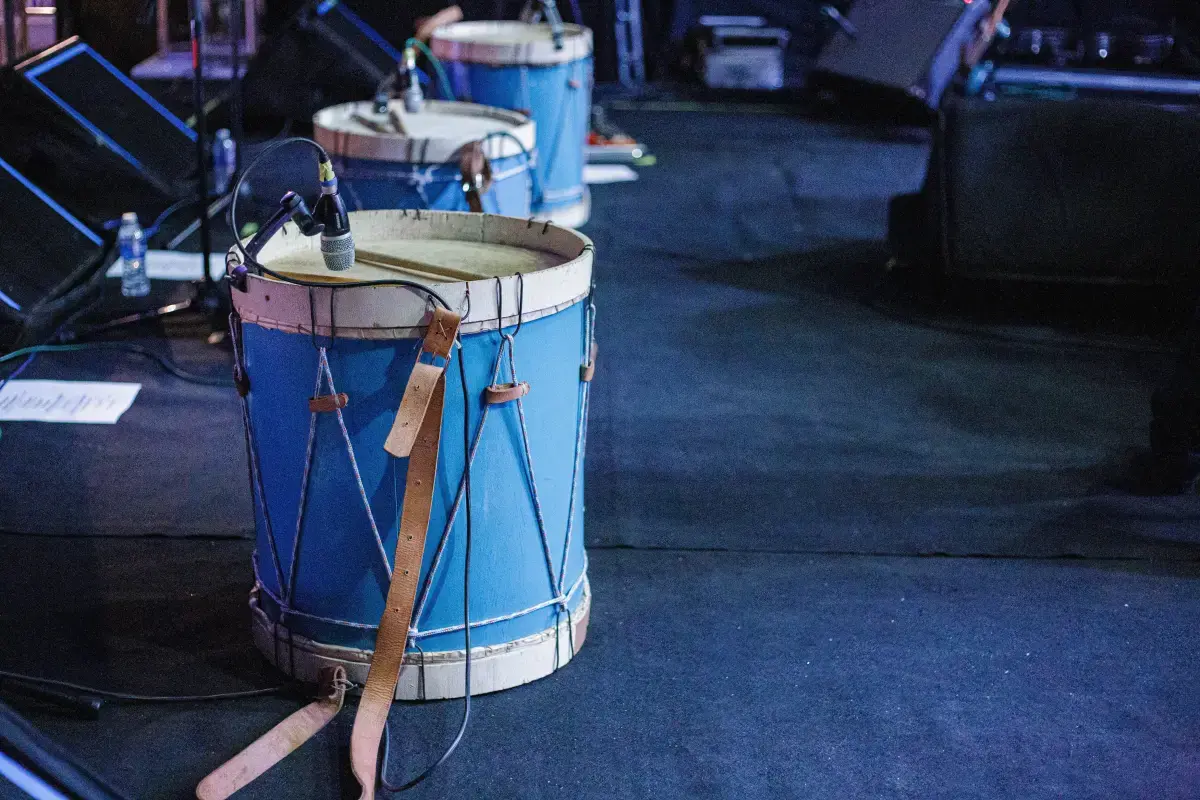
Roadie Job Description
What is a Roadie Professional?
A roadie is a person who works in the live music industry, assisting bands and artists with their live performances. They typically work behind the scenes, setting up and breaking down the stage before and after each show.

What does a Roadie Expert do?
Roadies also have a variety of other responsibilities, such as managing equipment, handling logistics, and providing customer service. In order to be successful in their job, roadies must be highly organized and efficient. They must be able to think on their feet and problem-solve quickly. They must also be physically fit, as they are often required to lift heavy equipment. Finally, roadies must be able to work long hours, often overnight or for several days at a time.

What are the Skills of a Roadie?
A roadie is a professional technician who works in the live music industry, typically touring with bands and artists to support their live performances. Roadies set up and maintain stage equipment, instruments and sound systems, as well as provide general assistance to the band or artist. They are an essential part of any live show and play a vital role in ensuring the smooth running of the event. As a roadie, you will need a wide range of skills and experience to be able to do your job effectively. Firstly, you should have a solid understanding of musical equipment and how it works. This includes knowledge of sound systems, speakers, amplifiers, microphones and PA systems. You should also be familiar with musical instruments such as guitars, drums and keyboards. It is also helpful to have experience in setting up and operating lighting rigs for live shows.

What makes an Expert Roadie?
Secondly, you must be able to safely lift and carry heavy objects such as speaker cabinets and amplifiers. Roadies typically work long hours during load-in and load-out at venues, so it is important that you are physically fit enough to handle this type of manual labor. Thirdly, you must be able to think on your feet and solve problems quickly when they arise during a show. This could involve anything from fixing a broken guitar string mid-performance to troubleshooting issues with the sound system. Fourthly, you must have good people skills as you will be working closely with other members of the crew as well as the band or artist themselves. It is important that you are able to communicate clearly and efficiently in order to avoid any misunderstandings or mishaps backstage. Finally, it is essential that you are well organized and can keep track of all the different pieces of equipment that need to be set up for each show. This includes knowing which items are stored where in the truck or trailer so that they can be easily found when needed.

What level of Experience & Qualifications are required to be a Roadie?
Industry Experience: 1. Several years of experience as a professional roadie 2. Ability to maintain and repair gear, including audio equipment and instruments 3. Knowledge of load-in/load-out procedures for different venues 4. Familiarity with lighting systems, rigging requirements, stage set-up, etc 5. Proficiency in troubleshooting technical issues while on the road Training: 1. Safety training (OSHA 10 or 30) 2. First Aid/CPR certification Qualifications: 1. Excellent communication skills (verbal & written) 2. Good organizational skills with attention to detail 3. Ability to work under pressure in high-pressure environments 4. Physical strength & stamina to lift heavy objects 5 .Ability to quickly learn new tasks 6 .Flexibility for travel and long hours when needed 7 .Knowledge of musical instruments is an asset 8 .Valid driver’s license preferred Education: 1 .High school diploma or equivalent 2 .Associate degree in sound engineering or related field is beneficial

What is the Salary of a Roadie?
A roadie’s salary expectations can vary greatly depending on experience, location and the type of job. Junior Roadies: Junior roadies typically earn between $10 - $13 per hour. This is an entry-level position where they will be expected to help set up and tear down equipment as well as transport it from one venue to another. They may also be asked to do basic maintenance work on equipment and assist in loading/unloading trucks for a production or tour. Intermediate Roadies: Intermediate roadies earn between $14 - $18 per hour. At this level, they are expected to have more knowledge about audio systems and lighting rigs and the ability to troubleshoot technical issues that arise during shows or rehearsals. They should also be able to transport large amounts of gear with a minimum amount of assistance from others. Senior Roadies: Senior roadies usually make anywhere from $19 -$30+ per hour depending on their experience level, region, etc.. These individuals often manage small crews of other road crew members while still doing some hands-on work themselves such as setting up complex audio systems or rigging intricate light designs. They may also act as liaisons between touring bands/artists and local venues in order to ensure smooth show operations at each stop along the way

What are the Working Conditions for a Roadie?
The general working conditions for a roadie vary depending on the type of show they are working and the production company. Generally, however, roadies work long hours in physically demanding environments. Roadies typically travel with their team to different venues and set up equipment before shows, as well as break it down after performances. They may be required to lift heavy items such as speakers or amplifiers, often in tight spaces. In addition to setting up and tearing down equipment, roadies may also be responsible for maintaining it during shows by making repairs or troubleshooting problems that arise mid-performance. Working conditions can range from being outdoors in extreme weather conditions (both hot and cold) to being inside cramped venues where noise levels are high due to sound systems blasting at full volume. Safety protocols must always be followed when handling electrical wiring or other potentially hazardous materials so that all personnel remain safe throughout the shows run time.

What are the roles and responsibilities of a Roadie?
Roadies are responsible for transporting and setting up all of the bands equipment before and after each performance.
They must also know how to operate and maintain all of the bands equipment, including amplifiers, instruments, and sound systems.
Roadies must be able to set up and take down the stage quickly and efficiently.
They must also be able to troubleshoot any problems that may arise with the bands equipment during a performance.
Roadies must have a strong knowledge of music theory in order to be able to tune the bands instruments properly before each performance.
They must also be able to read sheet music in order to help the band members setup their instruments correctly on stage.
Roadies must be physically fit as they will often have to lift heavy pieces of equipment or move large speakers around backstage.
They must also be able to work long hours, often late into the night, in order to get everything set up for each performance or event.
Roadies must have a good sense of time management in order to keep everything on schedule and running smoothly backstage.
They need to be able to think on their feet and solve problems quickly when something goes wrong.
Roadies must be able to lift heavy equipment and set it up in the right spot without damaging it.
They also need to know how to use all of the different types of equipment so that they can set it up correctly and safely.
Roadies must be able to work well under pressure and stay calm in chaotic situations.
They need to have good communication skills in order to coordinate with other crew members backstage.
Roadies must be team players who are willing to help out wherever they are needed, even if it is not their job specifically.
Roadies must be prepared for long hours of standing, walking, and lifting during each performance or event.
They also need to be able to travel with the tour or band as needed in order to set up at each venue beforehand.
Roadies should have a basic knowledge of first aid in case someone gets injured backstage during a performance or event

Where can I find Roadie jobs?
- Create a profile on gigexchange and promote your Roadie skills to advertise you are Open to New Work Opportunities
- Ensure your Resume (or CV), or online work profile is up to date and represents your skills and experience. Ensure your reputation reflects your ability & attitude.
- Apply for Roadie Jobs advertised on gigexchange.
- Practise Roadie interview techniques to ensure you represent your personality and ability succinctly and confidently.
- Accept the job offer if the salary meets your expectations and the employer mission and purpose reflects your core values.
Jobs
What are the best job boards for Stagehand jobs?

How can I hire Roadie staff online for my business?
The best job board for recruiting Roadie experts is gigexchange.com. Advertise full-time, part-time or contract jobs to find, hire & recruit trusted, experienced and talented Roadie candidates near you.

Are Roadie roles in demand in 2026?
Roadie experts are still in high demand in 2026. If you are an experienced Roadie or looking to train and become one. The job market is looking strong for Roadie jobs near me.